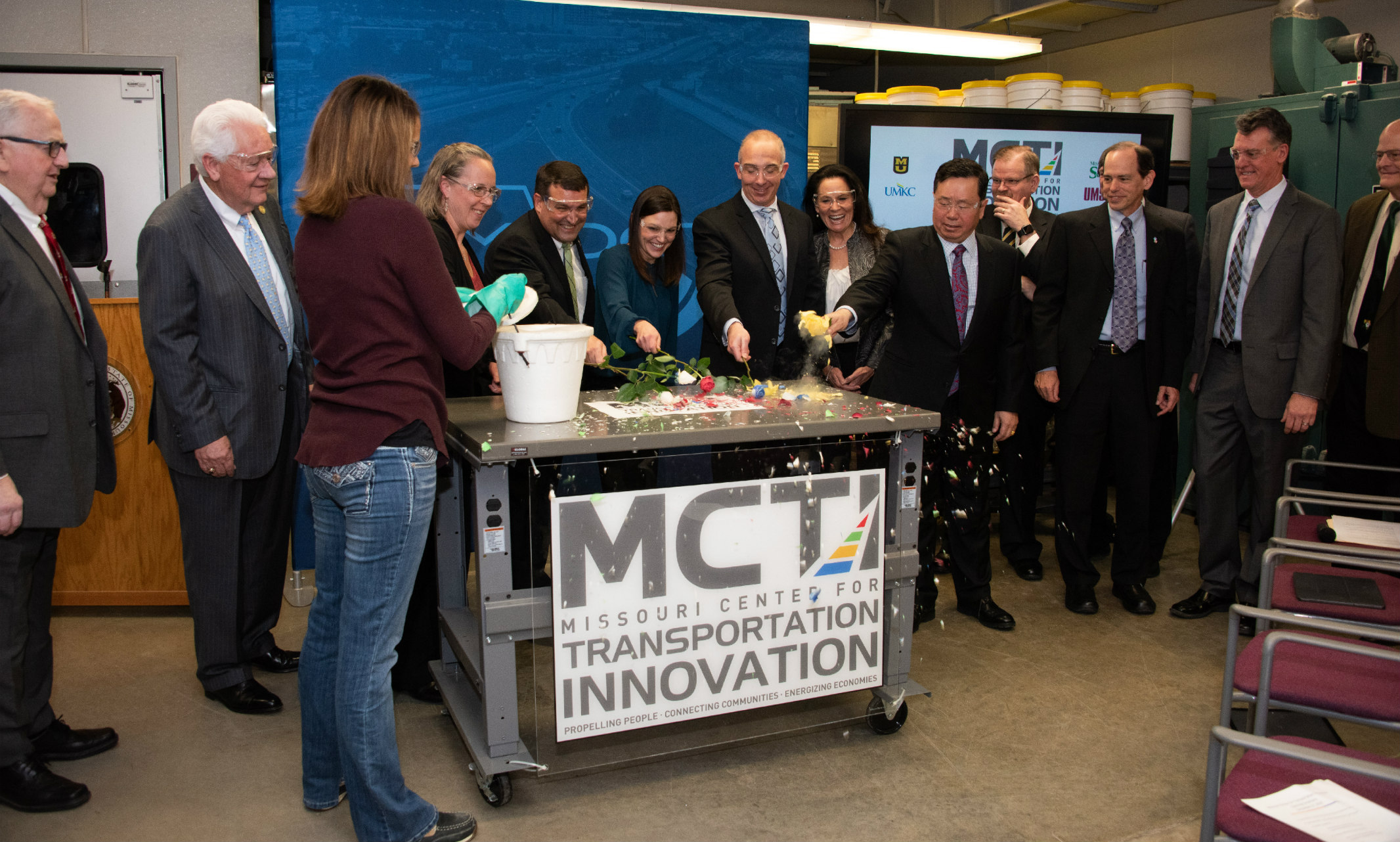Missouri’s roads and bridges need an upgrade, but state funding is tight. A new entity, the Missouri Center for Transportation Innovation, will combine academic research with industry partners and other stakeholders to create novel transportation solutions.
Innovative solutions are needed to address crumbling roads and bridges across Missouri. A new collaborative center within the University of Missouri System hopes to accelerate the future of transportation-related research by connecting academic minds and industry leaders.
The Missouri Center for Transportation Innovation (MCTI) will share academic research from each of the four UM System universities — UMKC, MU, UMSL and S&T— with the Missouri Department of Transportation (MoDOT) to maximize the impact of state-funded transportation research, and to attract large-scale, federal grants to pursue research on the cutting edge of transportation. Built around a common theme of innovation, MCTI research interests will include connected and autonomous vehicles; transportation safety; advanced materials for pavements and bridges; recycling and sustainability; resilience; big data in transportation; congestion relief; and transportation policy and economics.
Bill Buttlar, the Glen Barton Chair in Flexible Pavement Systems at the MU College of Engineering, will serve as the center’s director for its first three years, joined by John J. Myers, professor of civil engineering and associate dean of the College of Engineering and Computing at S&T as the deputy director. John Kevern, professor and chair of civil and mechanical engineering at UMKC; and Jill Bernard Bracy, assistant teaching professor in the College of Business Administration and assistant director of program development for the Center for Transportation Studies at UMSL; will also help lead MCTI by serving on the center’s operations cabinet.
“Combining the strengths of the UM System universities with MoDOT through the MCTI is a clear expression of our mission to foster research that benefits the people of Missouri, the nation, and the world,” UM System President Mun Choi said. “Building effective connections between our universities and the state will accelerate research breakthroughs and support economic development and improve transportation safety.”
The base funding for MCTI will be provided through the MoDOT state planning and research funding.
Myers notes that new transportation-related laboratories at both Missouri S&T and UMKC will also help facilitate the expansion of transportation-related research capabilities at all four UM System universities.
The $32 million Robert W. Plaster Free Enterprise and Research Center at UMKC, scheduled for a fall 2020 opening, will include leading-edge high-tech research and development capabilities.
And next spring, the $6.5 million Clayco Advanced Construction and Materials Laboratory (ACML), currently under construction at Missouri S&T, will combine civil infrastructure testing and analysis techniques with the development of new infrastructure materials and construction methods in the ACML.

